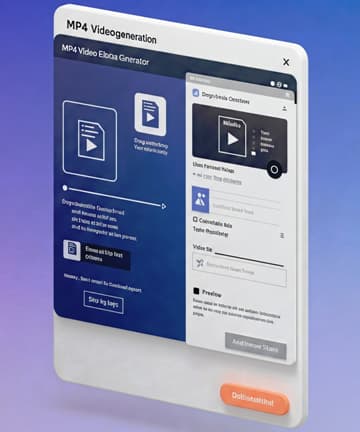🤖 AI-Powered Suggestions
Generate hundreds of long-tail keyword variations using advanced AI algorithms that understand search intent and user behavior patterns.
🎯 Competition Analysis
Identify low-competition, high-intent keywords with built-in difficulty scoring and competitor analysis features.
📈 Search Intent Detection
Automatically categorize keywords by search intent (commercial, informational, navigational, transactional) for better targeting.
💡 Content Ideas
Transform keyword research into actionable content ideas that people are actively searching for right now.
Tired of Writing for Google and Getting Ignored?
You’re not the only one. A lot of business owners sink time into keyword strategies that don’t actually bring in the right traffic—or any traffic at all. You are use AI Long-Tail Keyword Tool to get actual results of your content.
The problem isn’t effort. It’s approach. You don’t need to work harder. You need to get clearer about what people are actually searching for—and how to speak their language.
Why Most Keyword Plans Flop
Say you write a detailed blog post on “digital marketing.” You publish it, promote it… and nothing happens. Meanwhile, your competitor keeps pulling in leads from a page focused on “email marketing automation for small businesses.”
So what gives?
They didn’t just guess what people might search for—they targeted real, specific searches that reflect actual needs.
This is the power of long-tail keywords. These are search phrases that are more specific and often longer—three words or more. Instead of trying to rank for “fitness,” you're aiming for things like “workout plan for new dads with no time” or “strength training at home without equipment.”
Why does this work so well?
- Less competition – Fewer sites are trying to rank for the exact phrase.
- Clearer intent – People typing in longer searches usually know exactly what they want.
- Better conversion – When you match the language and the need, people are more likely to click, stay, and take action.
How AI Tools Can Actually Help
Old-school keyword research was a lot of guesswork. You’d brainstorm terms, plug them into a basic tool, hope for decent search volume, and take a stab.
Today, that’s changed. AI-powered keyword tools scan through mountains of real search data and spot trends before they go mainstream. They don’t just suggest keywords—they help you understand why those keywords matter.
Even more helpful? These tools can sort search terms by intent—whether the searcher wants to learn something, buy something, compare options, or find a specific site.
Knowing that lets you match your content to what the reader is actually trying to do.
A Smarter Keyword Tool (That’s Actually Built to Help)
I've built a keyword research tool that takes all this into account—without overwhelming you with data you don’t need. Here’s what it does:
Core Features
- Suggests hundreds of long-tail keyword ideas
- Pulls in real questions people are asking
- Shows what your competitors missed
- Labels each keyword by intent: learn, buy, navigate, research
- Flags how hard each one is to rank for
Analytics That Actually Matter
- Real-time keyword stats
- Search volume estimates
- An “opportunity score” from 1–100 (higher is better)
- Trend arrows showing what’s rising or fading
- A clean table you can sort and filter
Smart Extras
- Suggestions based on your industry
- Location-based keyword ideas
- Seasonal trends and time-sensitive terms
- CSV export
- Flexible research modes (by questions, competitors, etc.)
How the Tool Thinks (So You Don’t Have To)
Behind the scenes, the tool mimics how people search—and how marketers think. It builds keyword variations based on:
- Actual questions users ask
- Words that signal commercial intent (“best,” “cheap,” “near me”)
- Industry terms that make sense for your niche
- Searches tied to specific places or times of year
In short, it helps you uncover keywords that have real potential—not just ones that sound good on paper.
How to Spot Your Best Keyword Opportunities
Start with a broad topic related to your business. Let’s say it’s “email marketing.”
The tool will give you hundreds of suggestions, but don’t chase everything. Focus on three simple metrics:
- Search Volume: Don’t get caught up in chasing the biggest number. Sometimes a phrase with 150 monthly searches is more valuable than one with 10,000—because the people behind those smaller searches are ready to act.
- Competition: Stick with keywords marked “low” or “medium” difficulty at first. You’ll get traction faster.
- Opportunity Score: This score blends everything together—volume, difficulty, and intent—to give you a clear sense of where to focus.
- Bonus tip: Look closely at question-based keywords. Someone searching “how to train a rescue dog with anxiety” doesn’t want fluff—they want a real solution, and that’s where your content comes in.
Writing Content That Actually Helps People
Once you’ve chosen your target keywords, don’t try to cram them into every sentence. Just write like a person answering a question or solving a problem.
If your keyword is “best project management software for remote teams,” then help someone actually figure that out. Compare options. List features. Include pricing. Talk about pros and cons. Use examples.
Yes, include the keyword in your title, and maybe in a few key places throughout the page. But don’t overdo it. Focus on being genuinely useful—Google rewards that more than keyword tricks.
Don’t Forget About Local Searches
If you run a local business, local keywords are your best friend.
The tool can find terms like:
- “best wedding photographer in Austin”
- “24 hour plumber near downtown Seattle”
- “yoga classes Brooklyn Heights”
These searches often come with less competition and much higher conversion rates, because the person searching is already close to taking action.
Know What’s Working (And What Isn’t)
Use the tool’s analytics to track how your keywords are performing. Look at:
Traffic Quality: Which keywords bring visitors who stick around?
Conversions: Which ones actually lead to sales or leads—even if the search volume is lower?
- Trend Data: Use the arrow icons (↗️ ↘️ →) to see which keywords are growing in popularity and which ones are dropping off.
Download your data regularly. The landscape changes, and what worked six months ago might need a refresh now.
Don’t Make These Common Mistakes
- Going after zero-search terms – Ranking #1 means nothing if no one’s typing it.
- Chasing irrelevant traffic – You might get clicks, but if your bakery ranks for “celebrity workouts,” don’t expect new customers.
- Ignoring intent – Someone searching “what is CRM software” is just learning. But “best CRM tools for startups” shows they’re ready to compare and maybe buy.
What’s Next: Voice, Context, and Timing
Search behavior is shifting fast. Voice search is growing, and people are using full questions instead of short phrases. Instead of typing “Italian delivery,” they’re asking, “What’s the best Italian place near me that delivers?”
Good keyword tools (like this one) adapt to that. They focus on natural language and understand context, not just isolated words.
Seasonal timing matters too. You can’t publish “Halloween costume ideas” on October 30 and expect to rank. The tool helps you spot trends early so you can create content before the wave hits.
Your new game plan and how to actual work
Here’s a simple way to get started:
- Pick a seed keyword related to your business.
- Run it through the tool.
- Filter by opportunity score and pick five keywords.
- Write one strong, useful article for each.
- Track results using the tool’s analytics.
Double down on what works. Adjust what doesn’t.
Reminder: keyword research is just the beginning. What matters most is what you do with the information.
You still need to show up with content that’s helpful, clear, and actually answers the questions people are asking.
When you combine smart keyword strategy with genuinely useful content, you don’t just win rankings—you earn trust. And that’s what drives results.





